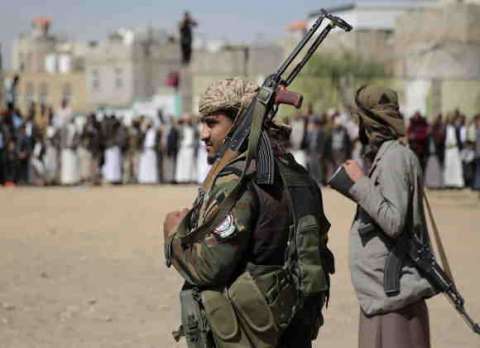The UAE and the Houthis

Abu Dhabi has two choices: either escalate the war in Yemen, or pull out
Two questions are raised by the Houthi Ansarullah movement’s missile androne attacks on Abu Dhabi and Dubai airports and an oil refinery and storage facility in the UAE.
The first is about the motives for the attack. The second is about the Emirates’ longer-term response: will it persist in its muscular re-engagement in the Yemen war after three years of semi-disengagement, or opt to withdraw completely as it said it would in 2019 to avoid potentially massive losses?
The Houthis, who have struck at every Saudi target they can in recent years, long avoided targeting the UAE despite being part of the ‘Arab Coalition’ and ‘Operation Desert Storm’ launched in 2015 by Saudi Crown Prince Muhammad Bin-Salman — who pledged at the time to make a conqueror’s entry into Sanaa.
When sources close to the Houthis are asked about the reasons for this exception, they make a number of points:
(1) They didn’t want to open two fronts simultaneously — the UAE and Saudi Arabia — while fighting on multiple fronts at home (against the Islah Party, the Southern Transitional Council, the ‘legitimate’ army, and others).
(2) They struck an unwritten deal with the UAE leaving it free to operate in South Yemen provided it steers clear, both militarily and politically, of the North.
(3) Their Iranian allies want to stay on board with the Emirates — especially Dubai which is their main channel for bypassing US sanctions — with whom they do more than $14 billion worth of trade annually.
(4) The UAE’s 2019 decision to gradually pull out of Yemen, after an estimated 150 of its soldiers were killed there and hundreds injured (including a son-in-law of de facto ruler Muhammad Bin-Zayed).
But all this changed when the UAE made a powerful comeback to the Yemen conflict, especially in the battles for Shabwa, Ma’rib and al-Bayda. It launched an all out proxy war against the Houthis using the ‘Giants Brigades’ led by Gen. Tareq Affash (son of late former president Ali Abdallah Saleh) and various southern factions. This overturned all equations on the ground: halting Ansarullah’s advances on these fronts, losing it control over oil-rich Shabwa province, inflicting enormous casualties in its ranks, and giving the upper hand to ‘legitimate government’ forces in Ma’rib which had been on the verge of collapsing.
After several days of hesitation — during which consultations were held with allied Yemeni tribal leaders and allies in Tehran and Beirut — the Houthis decided to retaliate against the UAE. But in a considered and restrained way, and much more gently than they did against Saudi Arabia. The aim was to send a warning message to the UAE: “You broke the agreement… If you go back on it, we will too. You have been warned.” These words are quoted verbatim from the Houthi source cited above.
The Emirati military response came quickly. Within less than 24 hours, an airstrike was launched against the central Sanaa home of the head of the air force academy, retired general Abdallah Qasem al-Juneid. Three families lived in the building. Around 23 civilians were killed and dozens were injured in the worst such attack in years.
Following the Houthi drone and missile attacks and the retaliatory Emirati airstrikes on Sanaa, the UAE has two options. It could restore the 2019 ‘truce’ with the Houthis, which would mean ordering its client forces to withdraw immediately from the Shabwa, Ma’rib and Bayda battlefronts and return to their previous bases on the southwestern coast.
Or it could continue the proxy war on those fronts and throw its full weight behind it to strengthen the faltering position of its Saudi allies — in line with an understanding reached with Saudi Crown Prince Muhammad Bin-Salman when he visited Abu Dhabi last month. What choice will the Emirati leadership make? The first option is tough because it would entail pulling out of the Saudi-led alliance and raising tensions with Riyadh, and scuppering the military ambitions of the UAE’s southern Yemeni allies.
But the second option could prove even costlier. The Houthis might continue and escalate their retaliatory attacks and target the UAE’s oil and tourism infrastructure.
Although this week’s drone and missile strikes were expected, they are a serious development which changes the rules of engagement and starts an unpredictable new stage in the Yemen War. If Israel — which is as far away from Sanaa as Abu Dhabi — has begun worrying about Houthi missile and drone strikes, how should the members of the ‘Arab Coalition’ be feeling?
This unprecedented bombardment of the UAE will either speed up efforts to end the Yemen war or lead to its escalation and expansion — with other regional parties (including the components of the Axis of Resistance) joining in, as in Syria. New Year surprises have started unfolding faster than expected.
https://www.raialyoum.com/the-uae-and-the-houthis/
 TheAltWorld
TheAltWorld 
0 thoughts on “The UAE and the Houthis”